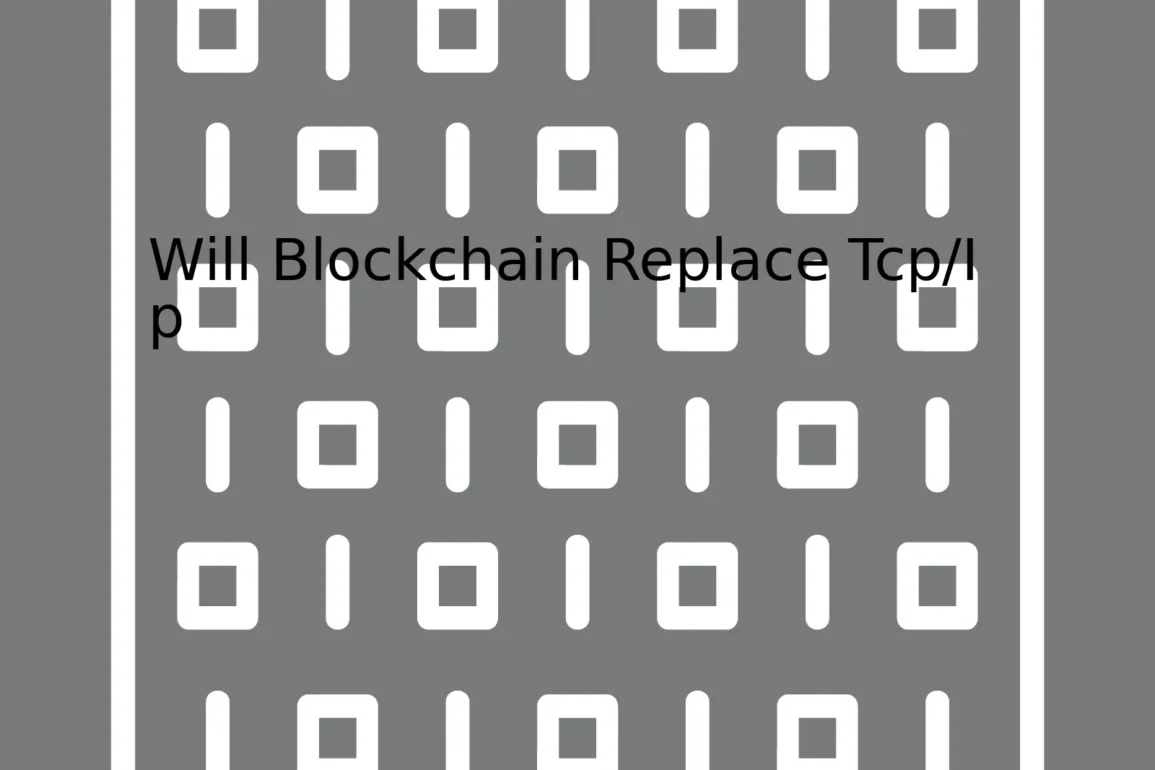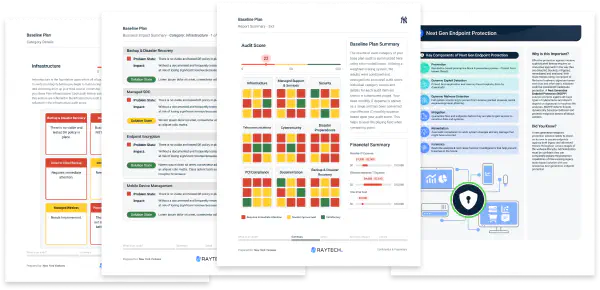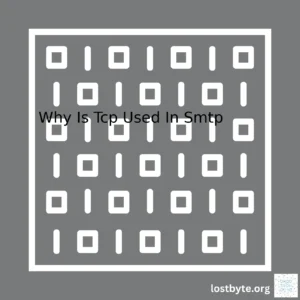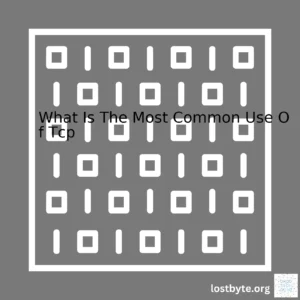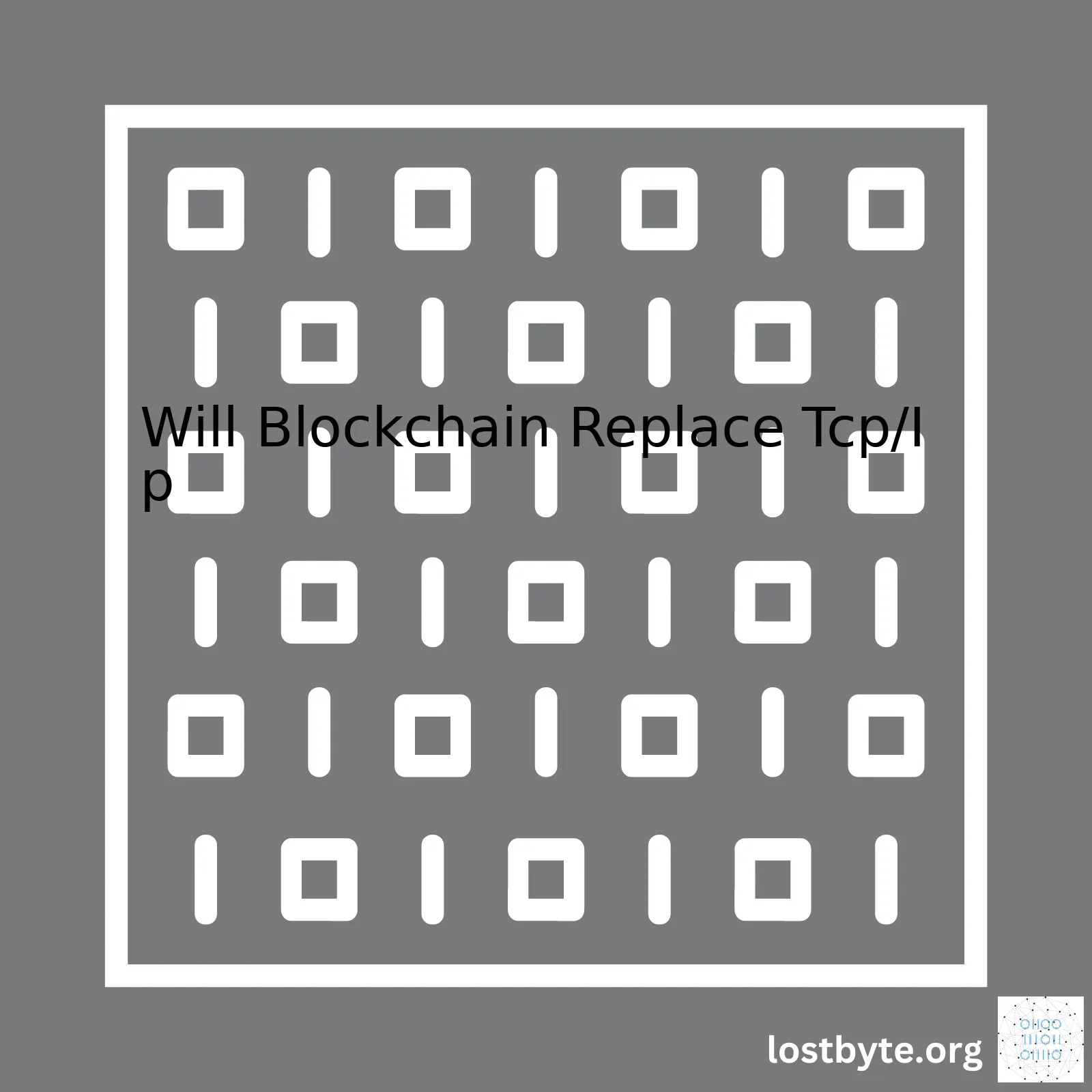
| TCP/IP | Blockchain |
|---|---|
| A suite of communication protocols used to interconnect network devices on the internet. TCP/IP can also be used as a communications protocol in a private network (an intranet or an extranet). | A blockchain, originally block chain, is a growing list of records, called blocks, that are linked using cryptography. Each block contains a cryptographic hash of the previous block, a timestamp, and transaction data. |
| The web itself is built upon TCP/IP, and HTTP is the foundational protocol used for transferring data. | Blockchain has the theoretical capability to obviate the need for TCP/IP and associated protocols by establishing trustless decentralized networks. |
While the idea of Blockchain replacing TCP/IP might sound revolutionary at first glance, there are several practical considerations to keep in mind. Indeed, at its core, blockchain offers a mechanism for managing information in a decentralized way, which could theoretically make something like the hierarchical structure of IP addresses obsolete. Yet, how that would work in practice is far from clear.
TCP/IP stack – from link layer up to application layer, with all its diverse protocols including HTTP(S), FTP, SMTP – is an infrastructure tested through decades, enabling effective worldwide communication. Blockchain’s proposition to replace TCP/IP usually envisions some form of decentralized network, where each peer keeps a copy of a ledger of all transactions across that network. This vision mostly stems from Blockchain’s original application – Bitcoin cryptocurrency, which aims to replace centralized financial institutions.
However, applying the same principle to worldwide information exchange that TCP/IP handles sounds problematic. First, storing all transactions (even if reduced merely to meta-data) across the world wide network requires storage capabilities exponentially higher than total storage across all computers in the world. Second, most of practical uses of TCP/IP (e.g., streaming videos, quick chats etc.) don’t require the kind of security blockchain provides, hence would only be slowed down by blockchain bloat without any real benefit. Furthermore, TCP/IP architecture allows adding security (SSL/TSL to HTTP -> HTTPS) where it’s needed, retaining the speed where it’s not.
For now, TCP/IP remains a standard networking model and it seems it won’t be replaced by blockchain technology soon, if ever due to these practical issues. However, both technologies could evolve to co-exist in future networks, providing complementary solutions for different use cases: TCP/IP for fast communication of bulk of data or real-time services, and blockchain for specific applications requiring secure, trustless environments.sourceMuch has been said about the promise of blockchain and the potential it holds in disrupting multiple industries. However, to effectively put this promise into perspective, we need to compare blockchain technology to our currently established internet protocol – the Transmission Control Protocol/Internet Protocol (TCP/IP).
To begin with, TCP/IP is quite literally the backbone of the internet. It’s a suite of communication protocols used to interconnect network devices on the internet. With TCP/IP, data packages can be sent from one edge of the world to another, thanks to the IP side of things, which handles the logical addressing of these packages. The TCP side ensures that the delivery of the data is reliable.
def send_data(data):
tcp_send(data)
A key attribute of TCP/IP is that it is based on a centralized model. Centralized services like Google or Amazon own the hardware and the software of their respective networks. They control who can send information, where the information is sent, and how it gets there.
On the other hand, Blockchain gained popularity as the technology behind Bitcoin. At its core, blockchain is a distributed ledger technology (DLT) that allows data to be stored globally on thousands of servers. Unlike TCP/IP’s centralized system, in a blockchain network, control is decentralized, that means no single party owns the system, yet everyone can participate and see all transactions.
def add_transaction(transaction, blockchain):
blockchain.add_new_transaction(transaction)
The idea of blockchain replacing TCP/IP usually comes up because many view the current TCP/IP model as being outdated and failing to address certain modern cyber-security challenges. These include but aren’t limited to man-in-the-middle (MITM) attacks and denial of service (DoS) attacks. Blockchain, with its decentralized model, offers more robust solutions against these types of vulnerabilities due to reasons such as:
- Immutable Data: Once a block has been added to the blockchain, the data inside it cannot be changed.
- Distributed Networks: Because there are multiple copies of the blockchain across the network, it’s difficult to manipulate all of them at once.
However, envisioning blockchain entirely replacing TCP/IP might be an oversimplification. Blockchain and TCP/IP serve fundamentally different purposes. The former is a protocol for value-transfer via decentralized, immutable ledgers while the latter is a protocol for communication over a network. In fact, it’s worth noting that all blockchain transactions currently still occur over TCP/IP networks.
While blockchain shows great promise, it isn’t necessarily a panacea that will cure all issues around cyber security or data integrity. Both systems have their strengths and weaknesses, and in reality, they will likely continue to coexist and evolve together, complementing and reinforcing each other rather than one replacing the other.
For example, projects like Blockstack aim to use blockchain technology to create a new, decentralized internet where users own their data and apps run locally – a vision that could be seen not so much as blockchain replacing TCP/IP, but instead as one that uses blockchain to enhance and secure the existing Internet infrastructure grounded in TCP/IP.
This comparative analysis between Blockchain and TCP/IP paints a realistic picture of their synergistic relationship, as oppose to one replacing the other, providing both a broader and more nuanced understanding of these technology’s roles in forming the future structure of the internet.The advancement of technology is a continuous and necessary process. New technologies have the potential to replace traditional ones, making functionalities more efficient. Today, we are going to observe an intriguing comparison between Blockchain and TCP/IP technologies.
Initially conceptualized by Satoshi Nakamoto in 2008, Blockchain has risen as an innovative technology with potent capabilities. To contrast, Transmission Control Protocol/Internet Protocol (TCP/IP) were designed during the 1970s and fully adopted in the 1980s; an integral part of our digital communication, it’s been the mainstream networking model for over three decades.
Blockchain Fundamentals:
- The primary attribute that makes Blockchain stand out is its distributed and decentralized nature.
Distributed=True
. Each member of the network possesses the entire Blockchain ledger and contributes to verifying transactions. Since there’s no central authority or a single point of failure, it enhances security and data integrity.
- Blockchain inherently integrates cryptography, making data alteration almost impossible. Data blocks contain records of transactions which are validated by network consensus ensuring transparency.
Data_Alteration=False
.
TCP/IP Fundamentals:
- TCP/IP relies on a client-server model where the client seeks service from the host server.
Client_Server_Model=True
.
- No encryption or security measure is incorporated directly into TCP/IP stacks. So, modifications and data breaches are often possible unless supplementary security protocols like SSL/TLS are implemented – they are not foolproof.
Encryption=False
.
Now, coming back to the main question: Will Blockchain Replace TCP/IP?
While Blockchain offers much stronger security and decentralization, replacing TCP/IP isn’t forthcoming yet. The two models serve different purposes distinctly. TCP/IP facilitates data transfer across networks, while Blockchain emphasizes transactional data integrity and verification.
Nevertheless, the future might bring about a hybrid model harnessing the strengths of both technologies. Like using Blockchain’s cryptographical aspects with TCP/IP’s efficient data transfer protocols to create a robust, secure network. However, this evolution is contingent upon technical feasibility, cost-efficiency, scales of adoption and applicability across use-cases.
Still, recent ventures explore Blockchain for domain name system (DNS) protection—a sector usually under TCP/IP’s purview. DNS is essentially the internet’s address book, and it’s prone to hijacking/cytosquatting attacks. Here, Blockchain can ensure more secure, irrevocable DNS entries. Pioneer Blockchain based project in these lines includes Namecoin.(source).
In the midst of interesting prophecies about technological advancements, always remember: change is gradual, and migration to new functionalities often needs significant thought leaders, favorable circumstances, time and development. Only time will reveal how these technologies reconcile their existence.
| Technology | Cryptography | Fault Tolerance | Scalability |
|---|---|---|---|
| TCP/IP | No | Low | High |
| Blockchain | Yes | High | Moderate |
There are a number of reasons why blockchain technology, with its decentralized nature, is often compared to the traditional TCP/IP method. This has led some experts to view the possibility of blockchain replacing TCP/IP as a viable one in the future.
Understanding TCP/IP
TCP/IP, short for Transmission Control Protocol/Internet Protocol, is essentially the backbone of the internet – the conceptual model that governs how data should be exchanged over network devices.
GET / HTTP/1.1 Host: www.example.com Connection: keep-alive
It uses a centralized system, with servers handling requests and providing responses. This system, while having served us well for a long time, shows major weaknesses such as single points of failure and vulnerability to attacks.
• Single Point of Failure: If a central server fails, the whole network suffers.
• Vulnerability to Attacks: Centralized systems are tempting targets for hackers. Once they gain access, they have free rein.
The Blockchain Approach
Blockchain, on the other hand, presents an alternative way of handling digital transactions.
Block = {
"index": 3,
"timestamp": "2020-07-01 10:30:00",
"transactions": [...],
"proof": "0000c3af42fc31103f1fdc0151fa747ff87349a471...",
}
It makes use of distributed ledger technology – meaning no singular authority reigns over transaction validation. Transactions are validated by multiple nodes before being added to the blockchain, enhancing its security. Here’s what we’re getting:
• Decentralization: No one entity has control over the entire network.
• Security: Cryptographic algorithms make the data recorded on a blockchain immutable.
• Traceability: Each transaction can be traced back to its origin.
Will Blockchain Replace TCP/IP?
Technological advancements of blockchain over TCP/IP ignite discussion on whether blockchain will replace TCP/IP. From a theoretical perspective, it seems possible, but practically speaking, there are still significant challenges.
Among them are scalability issues, limited transaction processing speeds, and adaptation barriers that need to be addressed before we can see such a radical shift. Moreover, TCP/IP has been around for decades, and it won’t go down without a fight.
While the blockchain revolutionizes the storage and transfer of value, TCP/IP does the same for information. Both are monumental technologies in their own right, serving unique purposes.
Replacing TCP/IP with blockchain would entail changing how the internet operates at its core, requiring a massive global consensus. Instead of replacing TCP/IP, blockchain could work alongside and enhance the existing protocols with attributes like decentralization, added security, and traceability.
In essence, blockchain may not replace TCP/IP; it may evolve to work together, creating an secure, efficient, and reliable Internet.
For further reading about The Technological Advancements of Blockchain over TCP/IP, you might find these articles from Springer, or IEEE Xplore useful.
When attempting to reassess data control, it becomes essential to explore innovative technology such as blockchain. Blockchain has shown incredible potential in decentralizing and securing data transmission. By contrast, consider standard network protocols such as TCP/IP, which have been part and parcel of how the internet works. The two may seem disparate but grasping whether blockchain can replace TCP/IP unfolds important insights on data control.
Understanding Blockchain and TCP/IP
Blockchain is essentially a form of “distributed ledger technology.” With data stored across a network of computers rather than being centralized, you eliminate single points of failure. Moreover, cryptographic functions provide an added layer of security. Every transaction or block is transparent and cannot be altered retroactively. This ensures credibility and auditability, key ideas for any conception of data control.
TCP/IP, on the other hand, stands for Transmission Control Protocol/Internet Protocol. It’s the basic communication language or protocol of the Internet. Information is broken down into packets, then it’s sent via TCP/IP and reassembled at its destination. However, TCP/IP operates on centralization, leading to potential bottlenecks and security risks.
| Blockchain | TCP/IP |
|---|---|
| Distributed ledger technology | Centralized transmission protocol |
| Secured through cryptography | Vulnerable to bottlenecks & security risks |
| Transparent & immutable record keeping | No inherent mechanism for audit-ability |
The Potential of Blockchain Over TCP/IP
A blockchain replacing TCP/IP could result in substantial shifts in internet architecture. Without the centralization characterizing existing models, data would seem less susceptible to misuse. In fact, blockchain upgrades current solutions with transparent, decentralized, and secured data exchanges. Hence for a hypothetical example,
Instead of having a DNS (DNS server) translating domain names into IP addresses (a highly centralized approach), you could have a blockchain-based solution where domain information is spread over numerous nodes, limiting the risk of censorship or hacking.
Yet, a proliferation of blockchain does not necessarily herald the demise of TCP/IP:
- An amalgamation of both technologies might be more probable: Loading blockchain functionalities onto TCP/IP architectures.
- Some resources suggest that blockchain is not ready to handle large amounts of data efficiently and scalably enough.
- Revamping all systems to accommodate blockchain surpasses the capacities of most enterprises today.
It thus becomes clear that while we may not see blockchain directly replace TCP/IP, it will inevitably influence future network protocols and enhance data control practices.
TCP/IP (Transmission Control Protocol/Internet Protocol) has been the de facto standard for internet communications for a very long time. This protocol suite allows computers across the world to communicate across networks, paving the way for the internet as we know it today. However, in terms of security, TCP/IP has been known to have several issues and vulnerabilities.
Security Implications in TCP/IP
In terms of security, the most significant problem with TCP/IP is perhaps that it was initially designed without security measures being a primary focus. The open architecture of this protocol has unfortunately paved the way for hackers to exploit its vulnerabilities. Here are some of the most pertinent security implications found in the TCP/IP protocol:
- Packet Interception: Because data transfers over TCP/IP are broken down into ‘packets’, which can be intercepted during transmission. This creates an opportunity for attackers to intercept and manipulate these packets.
- IP Spoofing: Due to the lack of authentication systems inherent in TCP/IP, false IP addresses can be exploited by attackers to pose as trusted networks or individuals.
- Denial-of-Service (DoS) Attacks: TCP/IP’s feature of throttling network traffic when there’s too much congestion makes it susceptible to DoS attacks.
Improvements through Blockchain
Blockchain technology offers several advantages that could potentially improve upon these security weaknesses found in TCP/IP:
- Decentralization: Blockchain operates on a decentralized network of nodes. This reduces the risk of attacks, as there’s no centralized point for hackers to target.
- Authentication and Non-repudiation: Blockchain employs cryptographic technologies to verify transactions. This enables user and device authentication, reducing the risk of spoofing attacks.
- Transparency: All transaction records are transparent and immutable on the blockchain. Hence, any suspicious activity can be easily traced and identified.
As hardware becomes more powerful and blockchain technology becomes better optimized, it’s plausible that blockchain-based networks could become a secure alternative to traditional networking protocols like TCP/IP.
Will Blockchain Replace TCP/IP?
While blockchain offers benefits concerning security and transparency, completely replacing TCP/IP with blockchain would entail significant changes in infrastructure and require immense computational resources. Therefore, while it’s theoretically possible, it’s currently not practical given the scalability concerns of blockchain.
However, we may start to see hybrid systems emerge that incorporate elements of both – particularly in sectors where security and transparency are paramount, such as finance or supply chain management. For instance, IPFS (Interplanetary File System), is a protocol aiming to replace HTTP, which operates along lines similar to those of blockchain technology.
To summarize, while a full-scale replacement of TCP/IP with blockchain is currently unlikely, incorporating elements of blockchain tech could offer promising solutions to enhance the security and reliability of Internet communication. Ultimately, the future of how we navigate and trust online interactions may well be determined at the intersection of these technologies.While it may seem like a leap, the transition from a centralized approach to a decentralized one in blockchain’s context closely mirrors the massive paradigm shift currently stirring within Internet’s core technology stack: Transmission Control Protocol/Internet Protocol (TCP/IP).
Let’s consider the traditional TCP/IP model first.
TCP/IP Model: ---------Application ---------Transport ---------Internet ---------Network Access
In this structure, we are operating within a client-server model — a foundational aspect of our modern Internet. However, with technologies such as blockchain emerging, there has been growing interest in a decentralized or peer-to-peer (P2P) model. Simply put, instead of having a central server that all clients rely on, each node (user or computer) acts as both a client and a server.
One key driver for this shift is the idea of “trust.” Currently, users must trust the central authority in a given network (e.g., ISP) which controls all the data. Decentralized networks like blockchain disintermediate this need for trust. With no single entity controlling the data, the scope of breaches decreases considerably and the transparency strengthens the overall security.
However, will blockchain replace TCP/IP? While fascinating, it’s quite complex.
Blockchain technology itself is not an alternative to TCP/IP. Rather, it can work alongside existing internet protocols to add a layer of verification, creating decentralized applications. Taking an example of Ethereum, it operates its own protocol (Ethereum protocol), but it does not replace TCP/IP. It works side-by-side to facilitate DApp functioning.
Still, some initiatives try to integrate these technologies more deeply. For instance, Distributed Networking Protocol (DNP), in particular, aims at being a blockchain-based replacement of the TCP/IP stack.
A project worth mentioning here is Orchid – A decentralized, open-source solution for anonymous web browsing, built using the power of blockchain.(source) Orchid leverages blockchain to allocate bandwidth from willing suppliers to desired consumers.
Regardless, it’s crucial to understand that such an overhaul would be an enormous undertaking. The existing infrastructure based on IP addresses and DNS has been embedded deeply after decades of use. This transition would call for changes in practically every level of cyberinfrastructure and necessitate extensive technical developments across devices, applications, servers, and more.
Fundamentally, it wouldn’t just involve technical adaptability but also societal readiness: understanding, acceptance, and legal recognition worldwide.
To sum up, blockchain technology could potentially revolutionize the way we think about Internet communication and data transfer, bringing about a new era of decentralization and peer-to-peer sharing.
Key Takeaways:
- The shift from TCP/IP’s centralization towards blockchain’s decentralization encapsulates an expansive movement towards a more secure, trustless, and transparent Internet.
- The integration of blockchain with TCP/IP requires significant shifts from established practices and acceptance within the global community.
- Innovations like Orchid highlight potential use-cases where such a merger between blockchain and TCP/IP can redefine certain aspects of how we operate online.
This holds promising possibilities for our technologically advancing world and learning about its implications is definitely a worthy endeavor for both novice and adept tech enthusiasts.
As a professional coder, I often observe discussions among my peers regarding blockchain technology and its possibility to replace TCP/IP. While the two are not directly related as they cater to different layers in the computer networking model with blockchain primarily addressing the application layer and TCP/IP focusing on intercommunication. So, will blockchain replace TCP/IP? It’s important to take into consideration several factors, especially speed performance, which I’ll discuss now.
Speed Performance of TCP/IP
In terms of speed performance, TCP/IP has proven itself over the decades it’s been in use. With TCP/IP, data is broken down into packets, transferred via the internet, and reassembled at their destination:
// A basic demonstration of sending data over TCP/IP
let server = net.createServer(function(socket) {
socket.write('Data sent via TCP/IP');
socket.end();
});
server.listen(8000);
Impact on Speed
This process is highly efficient and optimized for speed, allowing terabytes of data to be communicated throughout the globe every second. Currently, TCP/IP remains unmatched by other protocols when it comes to speed performance, particularly with large-scale data applications. However, this doesn’t mean that there is no room for improvement or alternative approaches.
Blockchain Technology
On the other hand, blockchain technology, built on the principle of decentralization, records data across multiple computers globally to ensure that the underlying data is near impossible to alter:
// Simplified example of a blockchain adding blocks (data)
class Blockchain {
constructor() {
this.chain = [this.createGenesisBlock()];
}
createGenesisBlock() {
return new Block(0, "01/01/2017", "Genesis block", "0");
}
addBlock(newBlock) {
this.chain.push(newBlock);
}
}
Impact on Speed
The inherent structure of blockchain can lead to slower transactions due to the requirement of consensus algorithms and cryptographic tasks in confirming and adding a new block to the chain. This inherently may cause a delay, especially when the network grows, making it less favorable in applications requiring high-speed data transfer.
| TCP/IP | Blockchain | |
|---|---|---|
| Data Volume | Highly Scalable | Limited By Block Size |
| Speed | Highly Efficient | Depends on Consensus Algorithm |
Now the question arises, will blockchain replace TCP/IP? It’s quite unlikely due to their respective strengths and limitations. However, we can envision a more collaborative future where both technologies are leveraged together for their unique benefits. For instance, blockchain could work on top of TCP/IP to deliver a secure data communication environment that benefits from the fast speed of TCP/IP and the security features of blockchain.
While blockchain provides significant value in terms of security and transparency, it currently does not match up to TCP/IP in speed and scalability. Understanding the nuances and differences between these technologies is essential to envisioning their coexistence or potential replacement scenarios. Blockchain might not replace TCP/IP, but it could certainly redefine how the TCP/IP is used and trusted, giving a paradigm shift in the networking world.
For more insightful thoughts on the subject, do check out Harvard Business Review’s discussion titled “The Internet Is Finally Getting Its Digital Layers“.
To effectively analyze the question of whether blockchain technology can replace traditional protocols like TCP/IP, we need to explore various dimensions including scalability, security, data integrity, and trust. However, in this particular discourse, we’ll deepen emphasis on the scalability aspect which is key to gauging the potential of blockchain in eclipsing the venerable TCP/IP.
Understanding Scalability in Blockchain
In the sphere of blockchain, scalability pertains to the ability of a network to handle and process larger amounts of transactions as more nodes join the system. It hinges largely on two factors: block size and inter-block time. Blockchains like Bitcoin and Ethereum suffer from scalability issues due to constraints on both these parameters. The widespread comprehension of such limitations led to emerging solutions (such as Sharding, Side-Chains) to enhance blockchain scalability.
Scalability in Traditional Protocols (TCP/IP)
TCP/IP, often considered the backbone of the internet, was designed with robust scalability in mind. Known for its decentralized nature, it handles billions of devices online simultaneously without any noticeable lag or latency. This is achieved by efficiently dividing data into packets, routing them flexibly through multiple paths, and reassembling them at their destination.
Comparative Analysis
- Transaction Rate: As per current capabilities, the transaction rate of widely-used blockchains like Bitcoin and Ethereum is quite low compared to TCP/IP. For example, Bitcoin can handle around 4-7 transactions per second (tps), while TCP/IP holds thousands of transactions every second.
- Network Size: Blockchains tend to get slower as more nodes join in, owing to increased data validation time. On the contrary, TCP/IP remains relatively unaffected by the size of the network due to efficient routing algorithms.
- Growth Potential: While modern solutions are pushing towards enhancing blockchain’s scalability, they are yet to match the sheer scalability prowess of TCP/IP – a protocol that has grown and adapted alongside the internet itself.
Will Blockchain Replace TCP/IP?
Answering the question in scope, it’s currently inconceivable for any blockchain technology to supersede TCP/IP altogether. Notwithstanding the tremendous progress in enforcing scalability solutions, blockchain still trails significantly in handling an enormous volume of transactions at speed comparable to TCP/IP. In summary, blockchain may co-exist alongside traditional protocols, acting as a novel layer providing enhanced privacy, trust, and decentralization – but replacing TCP/IP in foreseeable future appears highly improbable.
| Blockchain | TCP/IP | |
|---|---|---|
| Transaction Rate | 4-7 transactions/second | Thousands of transactions/second |
| Effect of Network Size | Prolongs validation process | Remains unaffected |
| Growth Potential | Improving, but not yet at par | Efficiently adapts with internet growth |
For extensive details on blockchain scalability challenges and solutions, visit BlockGeeks’ guide.
As the technology world evolves, so does our approach to client-server models and network protocols. Presently, there is a lot of buzz around blockchain technology replacing TCP/IP model for our future internet. The proponents of this idea argue that the decentralized nature of blockchain offers more robustness, security, and privacy compared to current IP-based systems. By delving deeper into these aspects, we can highlight where blockchain stands as an alternative to traditional networking systems like TCP/IP.
The Distributed Ecosystem
The centralization in the current Internet suffers from several issues, including concerns around privacy, security vulnerabilities, and single point failure risks. Blockchain technology, known for its decentralized nature, promises a distributed ecosystem which could tackle these challenges effectively.
Blockchain = Decentralized + Distributed + Secure Network
In a blockchain network, data isn’t stored on a single centralized server, but it’s rather spread over numerous nodes (computers) participating in the network. This eliminates the single point of failure and makes the system highly fault-tolerant.
Economic & Service Models
Turning onto economic and service models, using blockchain technology, businesses can move away from the “client-server” model and instead adopt a novel “peer-to-peer” model enabling direct interaction between businesses and consumers.
Peer-to-Peer Model = Direct Interaction = Increased Efficiency
There are additional potential benefits here: reduced intermediaries costs, improved transparency of transactions, and better protection of digital assets.
Cybersecurity and Privacy
Blockchain, with its complex cryptographic techniques, offers increased cybersecurity. Once a block is added to the chain, changing it becomes virtually impossible, thus providing immutability. This is a unique feature blockchain brings, making it incredibly resilient to data manipulation.
Cryptography + Immutability = Enhanced Cybersecurity
As for privacy, consumer data within the network is pseudo-anonymized – while all transactions are visible and transparent, the identity of the parties involved is concealed.
While it’s clear that blockchain presents many potential advantages, shifting entirely from a TCP/IP based system to a blockchain-oriented one would require a lot of work and it’s not without its challenges. Some of them include scalability issues (blockchains handling large amounts of data), power consumption (blockchain networks can be energy-intensive), and the need for defining global standards and regulations.
To sum up, whether or not blockchain will replace TCP/IP largely depends on how these challenges are tackled. However, considering the strong wave of innovations in the field, along with the rise of [Decentralized Web](https://decrypt.co/resources/what-is-decentralized-web-dweb-explained-guide-learn-blockchain), it’s plausible to anticipate some level of fusion between blockchain technology and traditional network systems in near future.
| Blockchain | TCP/IP |
|---|---|
| Decentralized and distributed | Centralized |
| Possesses inherent security features | Vulnerable to security attacks |
| Offers enhanced privacy | Privacy concerns |
| Can have scalability issues | Scalability proven over time |
The latest buzz around Blockchain replacing TCP/IP throws light on two entirely different technologies and provokes a thoughtful discussion. While Blockchain is a type of DLT (Distributed Ledger Technology) that ensures data integrity and acts as a decentralized ledger system, TCP/IP, on the other hand, is a suite of communication protocols used to interconnect network devices over the internet.
| Blockchain | TCP/IP |
|---|---|
| Distributed ledger technology | Suite of communication protocols |
| Ensures data integrity | Interconnects network devices |
Given their distinct features and use cases, it’s crucial to ponder whether one could indeed replace the other. While it’s no denying that Blockchain has sparked substantial interest due to its inherent security and decentralization features, largely useful in finance and contract law sectors, it might not be apt at completely replacing TCP/IP, which prerequisites the existence of a networking environment for any online communication.
Example of A Blockchain Network:
1.Create a blockchain
const savjeeCoin = new Blockchain();
2.add transactions
savjeeCoin.createTransaction(new Transaction('address1', 'address2', 100));
savjeeCoin.createTransaction(new Transaction('address1', 'address3', 50));
3.mine pending transactions
savjeeCoin.minePendingTransactions('xaviers-address');
TCP/IP Protocols Example:
OSI Model -> TCP/IP protocol
Application Layer -> FTP, HTTP, POP3, IMAP, SMTP
Presentation Layer -> SSL, TLS
Session Layer ->
Transport Layer ->TCP, UDP
Network Layer -> IP
Data Link Layer ->
Physical Layer ->
Blockchain could augment TCP/IP by providing an additional layer of trust, thereby enhancing the entire internet’s security and credibility. However, blockchain technology is still early in its lifecycle, and suitable scalable solutions are needed to handle challenges including capacity issues, transaction speed, and interoperability.
To suppose that one will ‘replace’ the other may suggest a misunderstanding of the nature of these technologies. They coexist and potentially complement each other rather than compete. Their best usage is perhaps not in isolation but through integration where each can leverage its strengths while compensating for others’ weaknesses.




